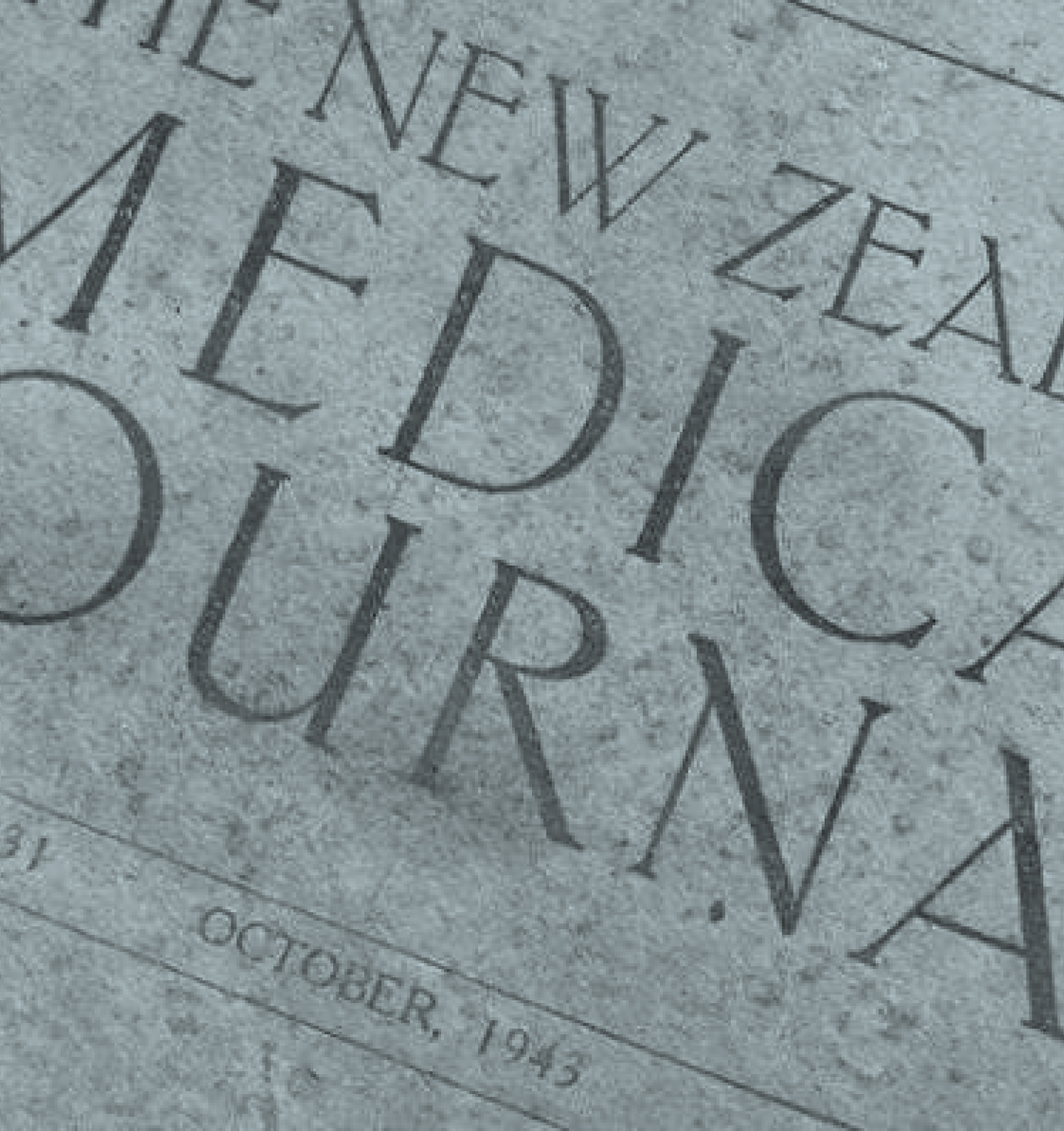EDITORIAL
Vol. 136 No. 1572 |
Ethnic inequities in health in Aotearoa New Zealand—an international embarrassment
Socio-economic disadvantage is responsible for much of the ethnic inequities in health seen in Aotearoa New Zealand. Combined with poor access to healthcare, sub-standard quality of care provided, racism and systemic bias, these factors result in chronic inequities and poor health outcomes for Pasifika and Māori people.
Full article available to subscribers
Aotearoa New Zealand is a wealthy nation by global standards, but that wealth is unevenly distributed. It appears that the wealth gap is widening. Pasifika and Indigenous Māori people are among the most socio-economically disadvantaged. Socio-economic disadvantage is responsible for much of the ethnic inequities in health seen in Aotearoa New Zealand.
Combined with poor access to healthcare, sub-standard quality of care provided, racism and systemic bias, these factors result in chronic inequities and poor health outcomes for Pasifika and Māori people. Ethnic inequities in health are unjust, unfair and patently avoidable.
Bula Sautu – A window on quality 2021: Pacific health in the year of COVID-19 from the Health Quality and Safety Commission New Zealand1 is the latest and most comprehensive description of the health status of Pasifika people. Bula Sautu shows us some of the worst inequities in our healthcare system but also profiles providers, communities and individuals responding well to the health challenges they face. For example, Pasifika people live 6 years fewer than non-Māori, non-Pasifika people. The gap in life expectancy appears to be widening, seen over the past 2 decades. The prevalence of diabetes in Pasifika people aged 25–44 years was 6.4% compared with 3.6% among Māori and 1.4% among non-Māori, non-Pasifika.
The 2023 Statistics New Zealand report Pacific housing: People, place, and wellbeing in Aotearoa outlines a grim picture of Pasifika housing.2 Damp, cold and overcrowded housing is responsible for poor health in Pasifika children and their families. Over half of Pasifika peoples lived in homes with at least one housing problem, compared with 32% of the total population.
Around half of Pasifika peoples lived in an owner-occupied dwelling in 1986, but by 2018 this had fallen to just over one third. Quality housing is essential for better health, and despite investment in the housing stock in Aotearoa New Zealand, Pasifika people continue to struggle to secure access to a fundamental human right.
It is embarrassing situation for Aotearoa New Zealand given its reputation for fairness in global policy terms. There is a moral imperative to act decisively to eliminate ethnic inequities in health in Aotearoa New Zealand.
Despite multiple plans and strategies to improve Pasifika health over the past two decades, it appears that the health status of Pasifika people has deteriorated. Deterioration in health indicators reflects the deterioration in socio-economic circumstances and rising costs of living.
Ethnic inequities incur significant costs to the health system and society more broadly. It is time to make courageous decisions and take decisive actions to eliminate ethnic inequities in Aotearoa New Zealand.
The Pae Ora legislation is an excellent framework enabling actions to eliminate inequities, but it is important accountabilities are clear and those in leadership roles are held responsible for results. Consideration should be given to meaningful accountability measures for those involved. Public reporting of results should be implemented. Pasifika strategies should be fully costed, and priorities made clear to the health sector.
Pasifika leaders and communities should also be engaged with and supported to contribute to improvements in the wider determinants of health. Priorities for action include improvements in housing and income distribution.
Investment in primary healthcare is urgently needed, including doubling the capacity of Pasifika providers, including “free” access to GP and nursing services. Improvements in access to and quality of primary care should ease pressure on emergency departments and hospital services.
Further investment in the training of more Pasifika healthcare workers is an additional priority.
Authors
Collin Tukuitonga: Associate Dean Pacific and Associate Professor of Public Health, Faculty of Medical and Health Sciences, The University of Auckland, New Zealand.Correspondence
Collin Tukuitonga: Associate Dean Pacific and Associate Professor of Public Health, Faculty of Medical and Health Sciences, The University of Auckland, New Zealand.Correspondence email
collin.tukuitonga@auckland.ac.nzCompeting interests
Nil.1) Health Quality & Safety Commission New Zealand [Internet]. Bula Sautu – A window on quality 2021: Pacific health in the year of COVID-19. Wellington: Health Quality & Safety Commission; 2021. Available from: https://www.hqsc.govt.nz/assets/Our-data/Publications-resources/BulaSautu_WEB.pdf.
2) Statistics New Zealand [Internet]. Pacific housing: People, place, and wellbeing in Aotearoa New Zealand. 2023. Available from: https://www.stats.govt.nz/infographics/pacific-housing/.
